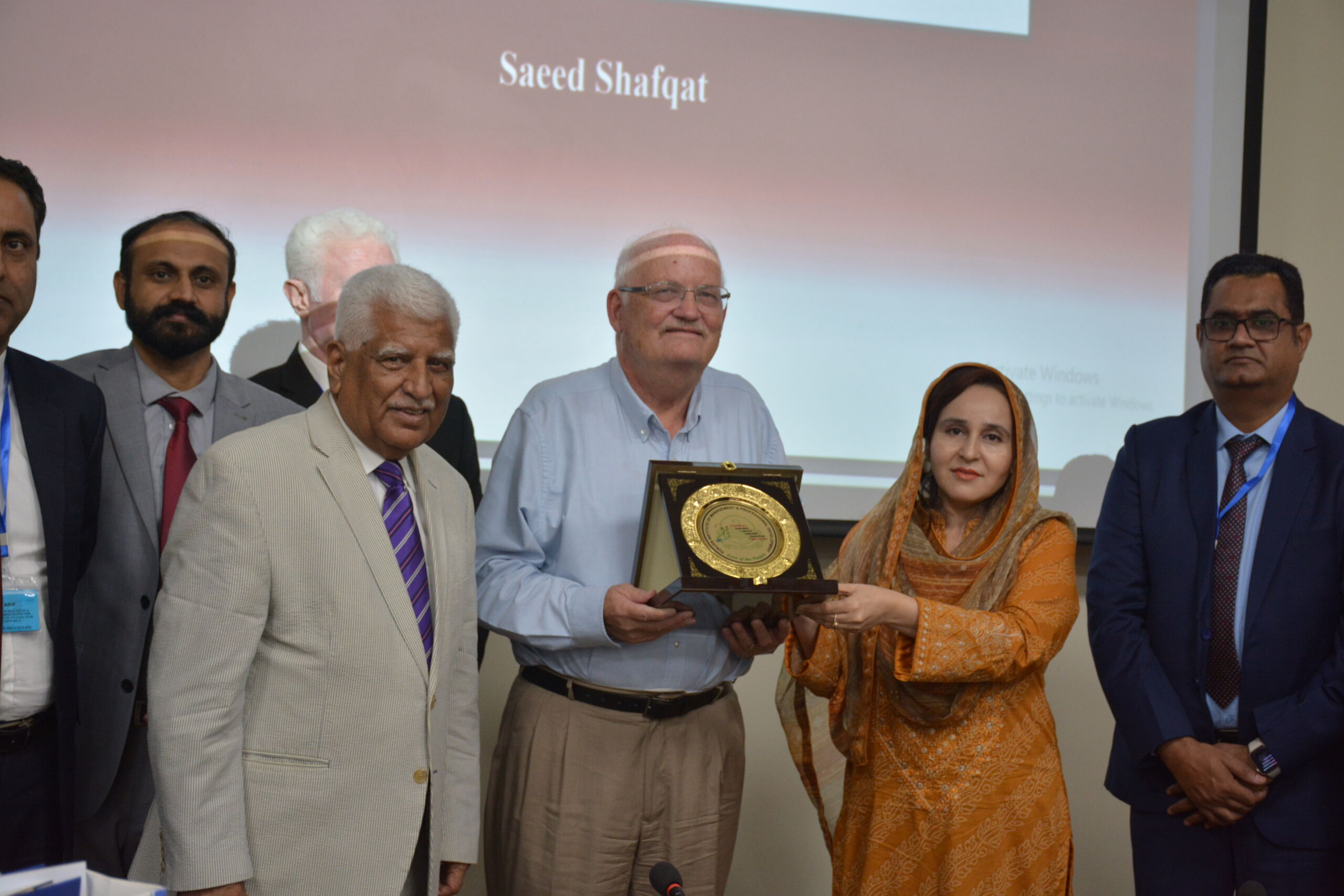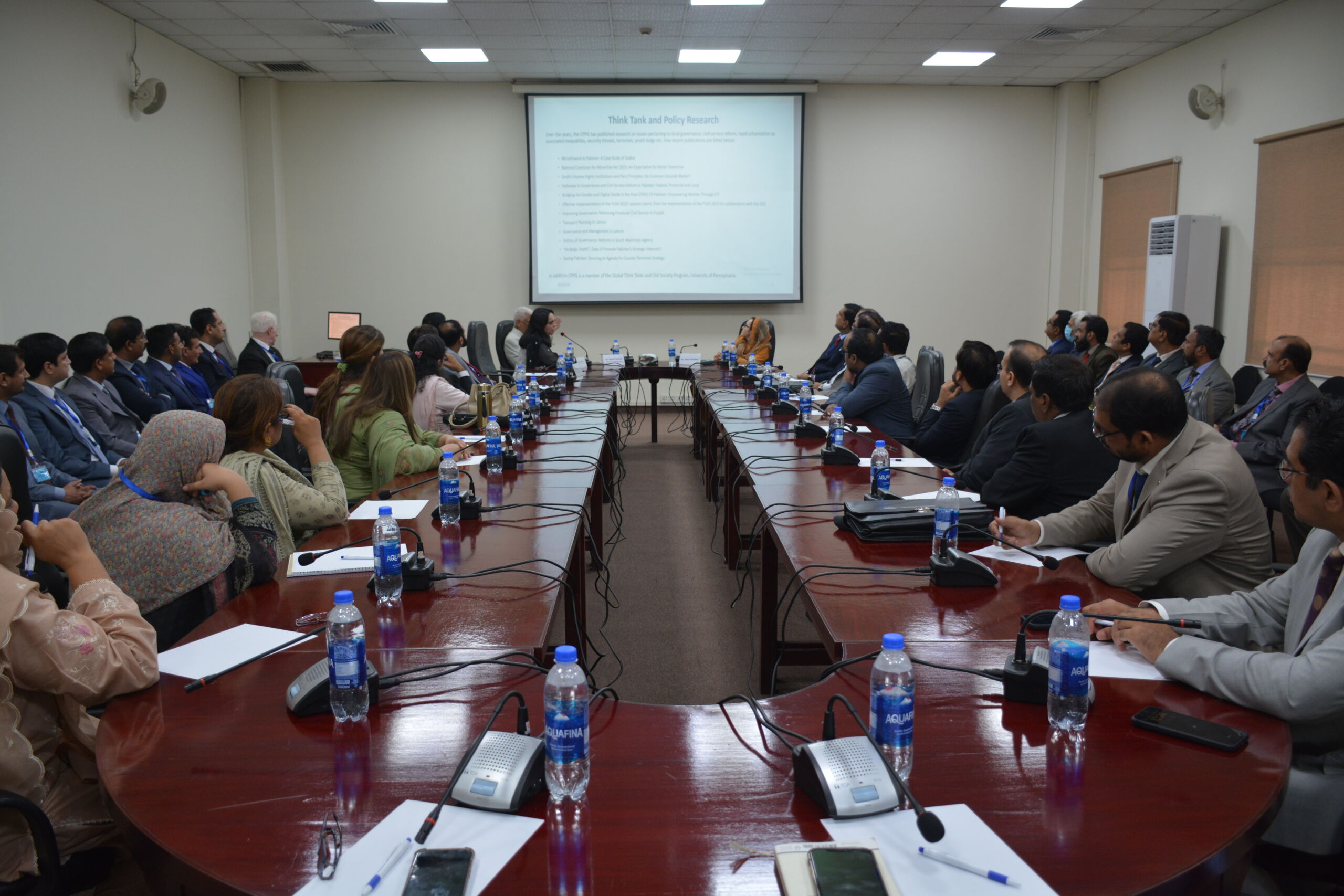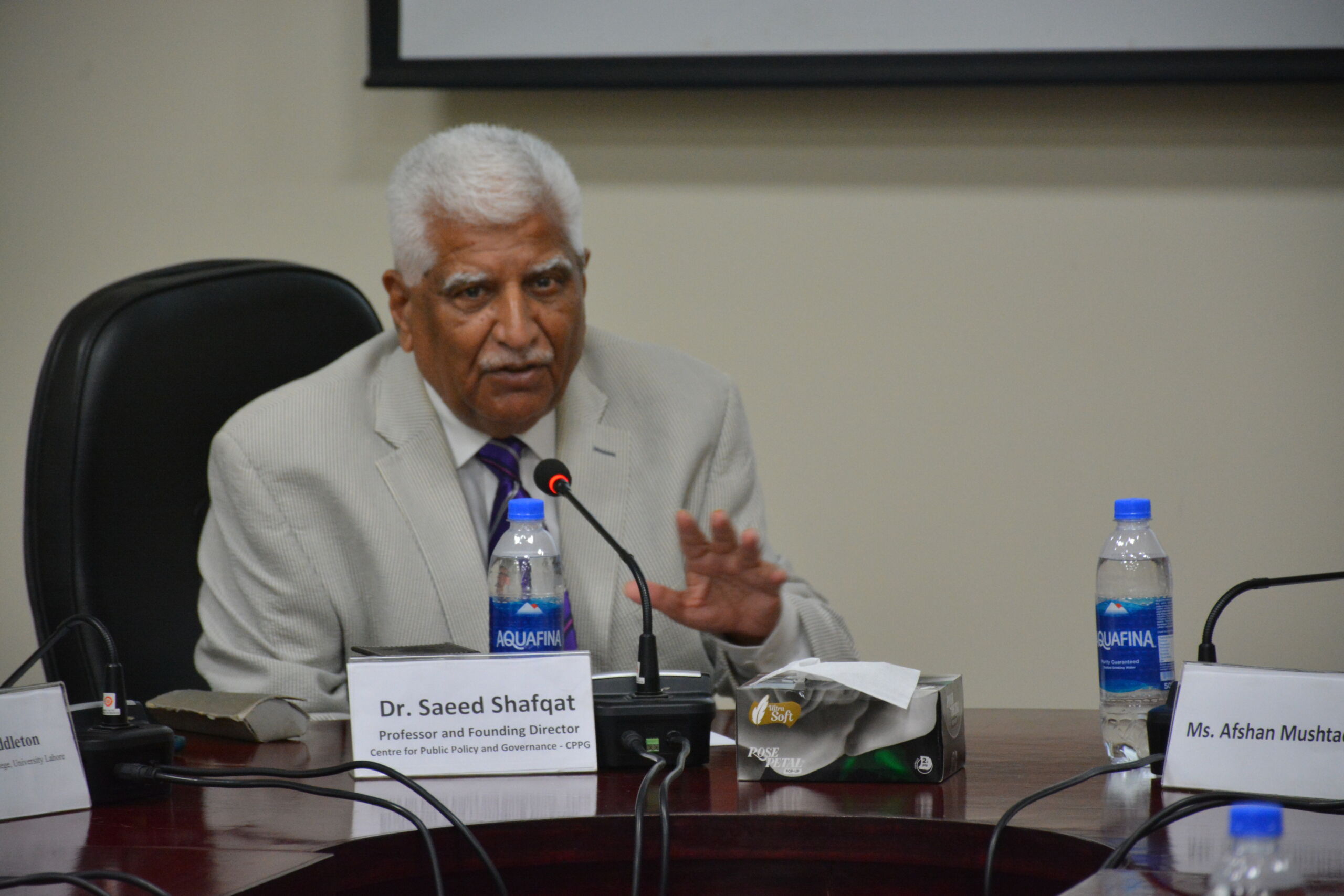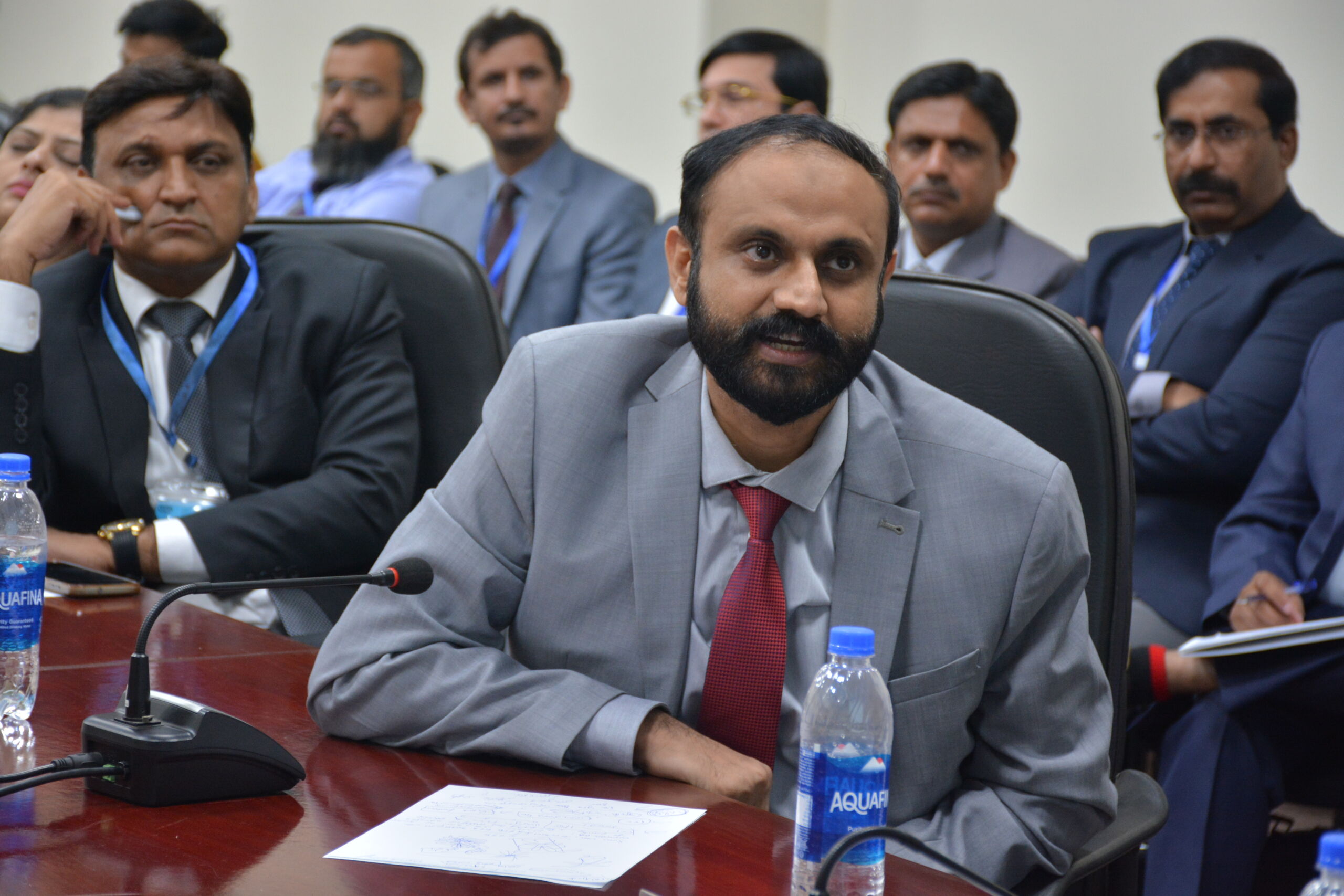
CPPG hosted a delegation from the Punjab Institute of Management and Professional Development (PIMPD)
Meeting
Past Event
Sep 2, 2024 - 3:00 pm |
Sep 2, 2024 - 5:00 pm
CPPG
E-002 CPPG FCCU
Upcoming Event
Centre for Public Policy and Governance (CPPG) hosted a delegation from the Punjab Institute of Management and Professional Development (PIMPD) for a lecture on Public Policy Formulation and Implementation in Pakistan by Dr. Saeed Shafqat (Director of CPPG). Ms. Ayesha Saddiqua (Project Research & Public Relations Manager) started the session with a brief introduction of the Centre for Public Policy and Governance (CPPG), its functions, the policy work the Centre is involved in and all its previous and on-going projects, which was followed by a general introduction of the participants.
Dr. Shafqat started the session with his remarks about the significance of such events which provide a rare opportunity for academia and bureaucracy to come together and engage in meaningful discourse on policy issues of Pakistan. After giving a brief overview of the principles and processes that govern policy formulation in different political setups, he shifted his focus to Pakistan, with an argument that Pakistan serves as an interesting case study since the policy design, development, and planning are influenced by multiple actors and institutions, each with their vested interests. The tussle between multiple stakeholders compromises the continuity and consistency of policy formulation greatly, the bureaucracy is the most significant section when it comes to policy formulation and its implementation. The bureaucracy not only has access to knowledge, policy channels, expertise, investments and policy information but also has to deal with external donors amongst other things.
Dr. Shafqat further in his talk argued that there are multiple issues and challenges in Pakistan.There is no national consensus or institutional cooperation, and the process of policy formulation lacks rigor. He then went on to explain the problems and challenges that impede reform in Pakistan. Institutional reforms are interpreted as the redistribution of power which is why they are vehemently resisted. Since most of politics is patronage-driven, the bureaucracy also likes to operate as a patron/client system. Despite having great potential, local governance remains largely ignored or disempowered. In Pakistan’s history, only Bhutto’s regime was able to bring about some significant reforms and restructuring but that too in a limited capacity. According to Dr. Shafqat, during Bhutto’s time, “structures were tinkered but not shaken entirely”.
Further emphasizing the need for structural changes, he lamented that the majority of the literature makes the case for structural changes, but these changes are no less than revolution. As a remnant of colonialism, the bureaucracy is still entrenched with an elitist mindset. Honesty, integrity, and civil virtue are no longer the norm. To drive change, the system has to evolve from within first. For policy design, reform, and the way forward, he proposed recommendations including 1. Federal cabinet restructuring, 2. Capacity building for existing bureaucrats, 3. Lateral entry for professionals into the bureaucracy, 4. Investment in human capital, 5. Creating a distinction between rationalizing the public sector and privatization, 6. Recruiting and training street level bureaucrats and 7. Reviving the local government.
After Dr. Shafqat’s presentation, the floor was then open for questions which went for an hour, as participants engaged with the speaker. When asked about the substantial weakness in policy formulation, Dr. Shafqat highlighted that inter-provincial coordination continues to be the least important area of consideration. Similarly, the Council of Common Interest which is supposed to meet every 90 days, is not only ineffective but gives almost no output. Other than that, there is a lack of political accountability, the Audit and Accounts Committee makes reports that have no bearing. Dignity for law needs to be restored starting from the top. Another question regarding the relationship between political governments, cabinets, bureaucracy and think tanks vis-à-vis policy formulation and the role of think tanks was asked. To which Dr. Shafqat contended that think tanks emerged as a set of professionals who advised the government on various policy issues. The government then takes up these policies for deliberation to the cabinet. The role of bureaucracy is that of a linchpin that holds the apparatus of federalism together. The bureaucracy tells the government how the structure works.
After the question-answer session Dr. Saeed Shafqat then asked the Rector of Forman Christian College (A Chartered University), Dr. Johnathan Addleton to share his concluding remarks. Reminiscing about his time as a civil servant, Dr. Addleton remarked how he benefited from similar management and development courses himself. On the issue of policy reforms, he mentioned that it is unfortunate that by the time a policy is implemented, its relevance diminishes. Structural reforms in the bureaucracy require gradual change. Concluding the discussion, the Rector said fostering the connection between academic discourse and civil servants can contribute to successful policy-making and implementation in Pakistan, something in which Forman Christian College University through the Centre for Public Policy and Governance (CPPG), takes immense pride.




